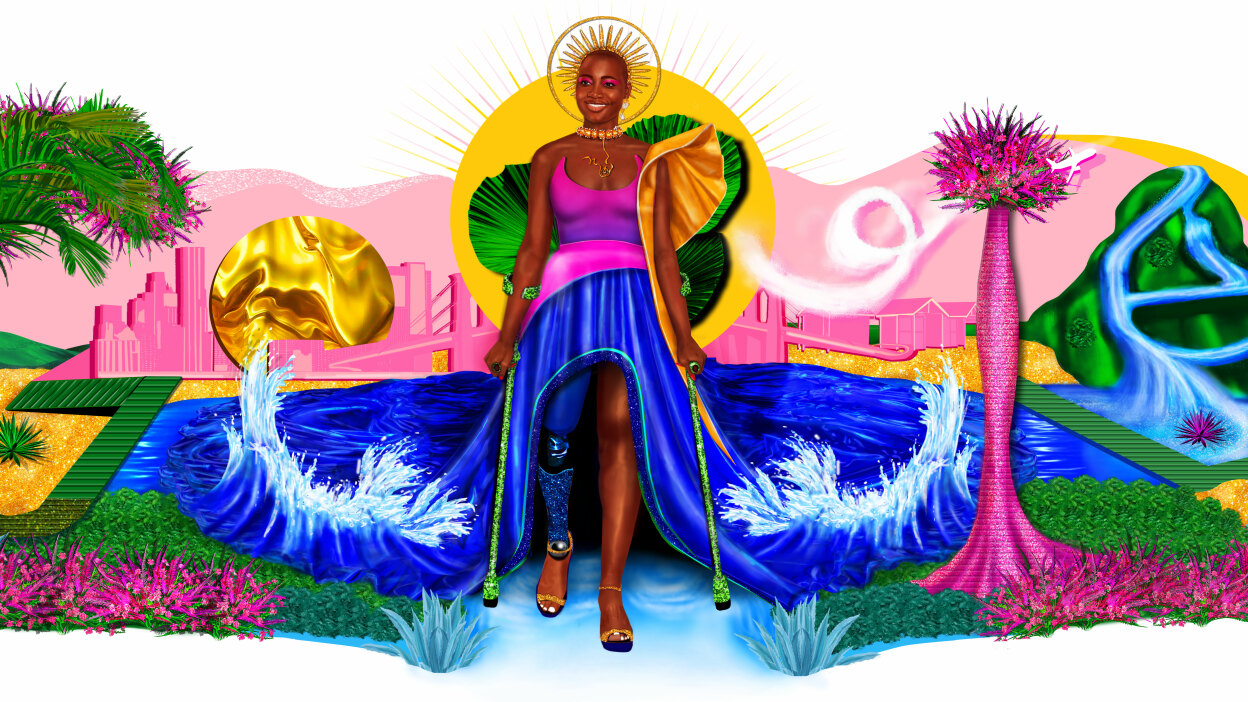If you've yet to spot the attention-grabbing artwork on Google's homepage, now is the time to bask in its glory — and to read about the star of the illustration, Haitian American model and disability rights activist Mama Cax.
The illustration was commissioned by Google in honor of Black History Month, continuing a Doodle legacy of shouting out important Black figures who haven't gotten their fair share of the historical record. Others who have donned the homepage mantle include baseball history-maker Toni Stone and father of modern video games Jerry Lawson. Mama Cax's illustration was created by Brooklyn-based artist Lyne Lucien(opens in a new tab), a previous Doodle creator known for lively and brightly-illustrated pieces of art that have donned magazine pages, museum walls, and even world heritage exhibitions in collaboration with UNESCO.
With this piece, Lucien honors an instance of more recent Black history-making.
Mama Cax was born in 1989 in Brooklyn, New York, as Cacsmy Brutus, but spent her childhood in Port-au-Prince, Haiti. At only 14, Mama Cax was diagnosed with two separate forms of cancer, which eventually led to the amputation of her right leg as a teenager.
Thus began a long journey of body acceptance for Mama Cax, focused primarily on her disability and the appearance of her new prosthetic leg. Eventually, Mama Cax began embracing her disability's outward visibility and donned her now famous brightly-painted prosthetic pieces. By 2017, Mama Cax had made a name for herself in online fashion and body positivity spaces, and would sign her first advertising campaign with Wet N Wild cosmetics that year. Over the next two years, she'd land several more campaigns, be on the cover of Teen Vogue(opens in a new tab), and walk the New York Fashion Week runway.
In an interview with Glamour(opens in a new tab) in 2019, Mama Cax described the intersectional advocacy she took on, as both a Black woman and a person with a disability operating in spaces that are historically very exclusive. "Even when I look at all-Black spaces, they lack that diversity as well," she told the publication, speaking about growing diversity in the fashion industry. "They do try to include different kinds of people within the Black community, but disability is often a missing piece. I'm embraced there because of my Blackness — I want to also be embraced there because of my disability."
Mama Cax died following a brief hospitalization in 2019(opens in a new tab), leaving behind a digital fashion footprint and lasting legacy deeply tied to the celebration of Black women and people with disabilities.
In creating her Doodle, Lucien called on a shared history between her and Mama Cax — both of them having ties to Brooklyn and Haitian childhoods — as well as the model's fluorescent individuality. "I understood Mama Cax to be resilient, vibrant, funny," she said. "She left a legacy for Haitians, and many people in the disability community, and I want people to see her light."































